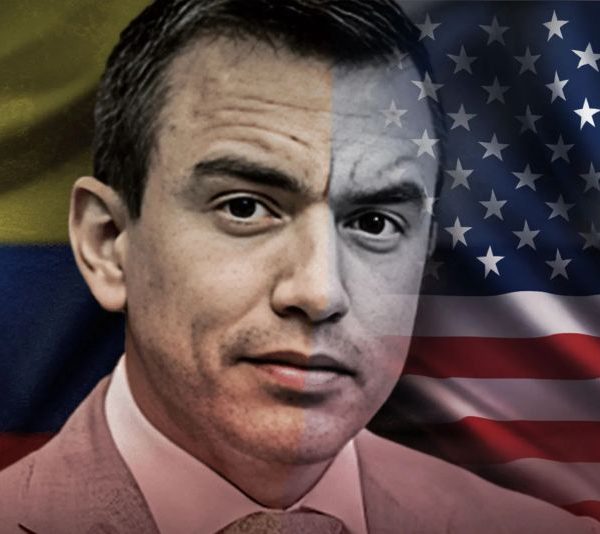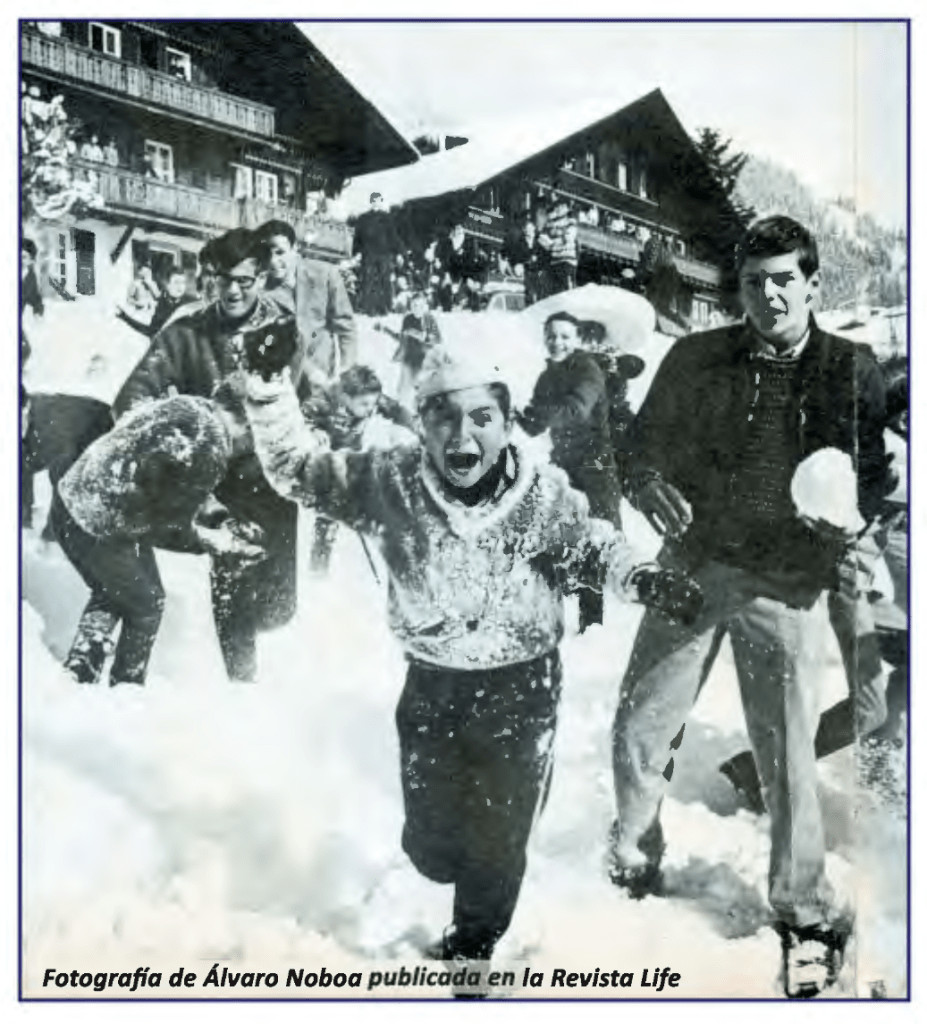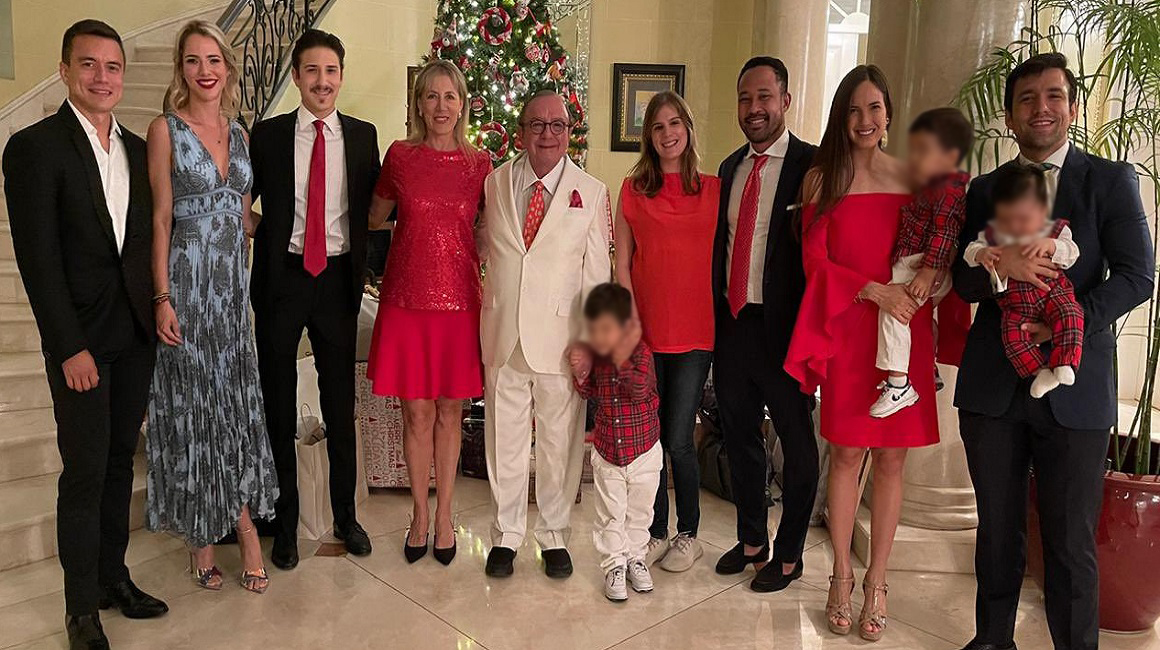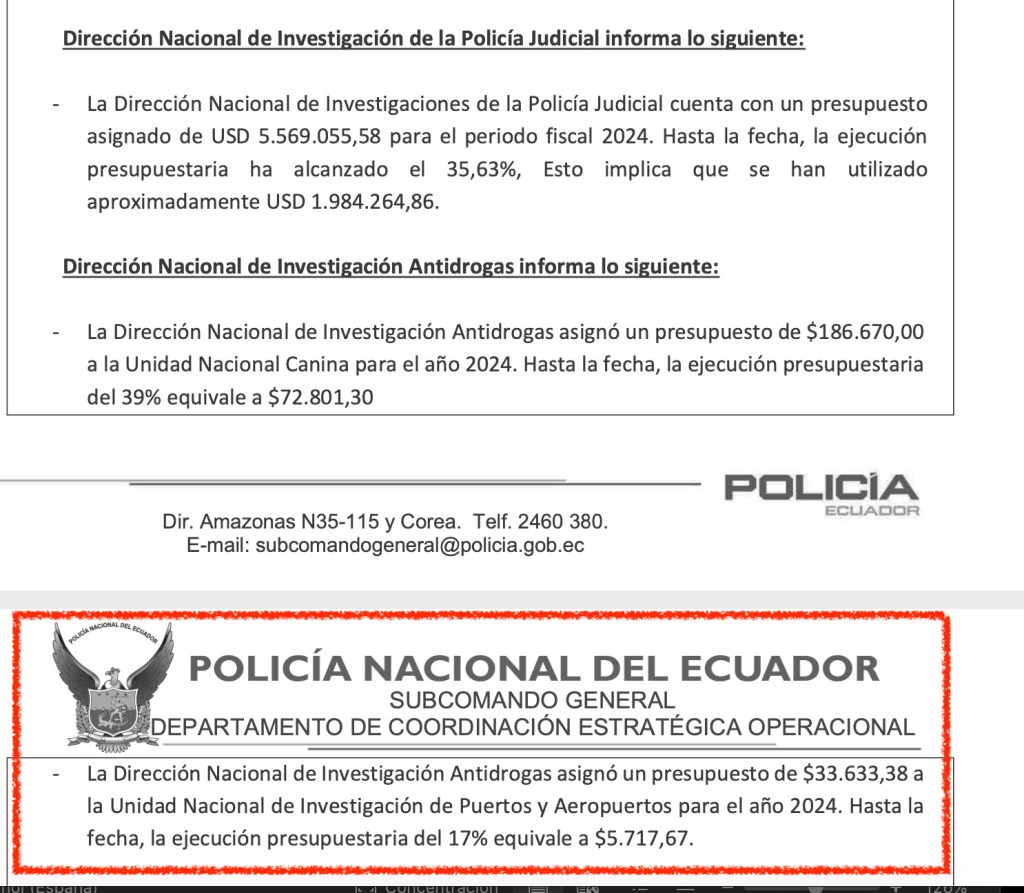
President Daniel Noboa appears to have stolen Ecuador's election. He's now poised to consolidate control of a system that has benefitted cartels and multinational corporations - including his family business - at the expense of average Ecuadorians. And Washington likes what it sees.
By Oscar LEON
Watch The Grayzone's special video report on Noboa's well-documented ties to transnational drug cartels here.
On April 13, 2025, Ecuador's National Electoral Council proclaimed incumbent President Daniel Noboa the winner of the presidential runoff-a result that his challenger, the left-wing Luisa González, denounced as "massive fraud."
If Noboa secures what appears to be an ill-gotten victory, he will be able to consolidate complete control over a state weakened by austerity and corrupted by deep infiltration by transnational drug cartels - a criminal network that is deeply enmeshed with his family's business.
González, who led several polls by up to 6 points as of Friday, has demanded a vote-by-vote recount.
Luisa González denounces FRAUD in Ecuador's presidential election pic.twitter.com/a98oorZgE9
- Kawsachun News (@KawsachunNews) April 14, 2025
In doing so, she pointed to irregularities that included, but were not limited to:
- 18 polling stations in her strongholds being relocated at the last minute
- Bonuses paid in cash using IMF funds before the runoff.
- "False positives" of ballots that forced the closure of polling stations where she held a wide lead; the banning of several foreign observer groups.
- Martial law imposed in seven provinces favorable to González.
- The denial of voting rights to all Ecuadorians residing in Venezuela.
- Noboa's illegal campaigning while in office, in defiance of court orders.
Andrés Arauz, a former presidential candidate and close ally of González, presented copies of altered ballots, showing irregularities and lacking the required validating signatures. These ballots were counted - and somehow always favored Noboa. This could explain why the use of cell phone cameras was prohibited in polling places. These strange events mirror earlier complaints of fraud, which were clearly documented with photos and videos from the first round.
Given Ecuador's enormous mineral wealth, and the timing of the election outcome amid a global scramble for copper, oil, and rare earth metals, the country's already fragile sovereignty now hangs in the balance
The Noboa family, with patriarch Alvaro at center in white suit, and Daniel on the far left
Noboa plunges Ecuador into violence, cartel-tied corruption
Noboa's victory reflects the dominance of an elite rooted abroad. Born in Miami, the sitting president is the scion of a family empire embedded in the system of global capitalism, and operating with complete impunity. As revealed in the Panama Papers, his family business includes Lanfranco Holdings, which was linked to three failed cocaine shipments to Europe. Noboa-owned companies owe $98 million in taxes to the country he now governs, and he has publicly stated that he doesn't intend to pay.
Noboa's tenure follows the neoliberal shift overseen by former presidents Lenín Moreno and Guillermo Lasso, who unleashed a wave of austerity on the country, hollowing out public services and state institutions while cooperating with Washington's national security agenda - most notably on the surrender of Julian Assange to British authorities.
The weakening of the state, especially in marginalized areas, opened the door for cartel infiltration-from ports to power structures. Ecuadorian investigative journalists Andrés Durán and Anderson Boscán have methodically exposed links between the state and the cartels which transformed Ecuador into a hub for drug trafficking and money laundering, while plunging its society into violence. But the journalistic duo's reporting soon forced them to flee into exile to save their own lives, highlighting the risk dissenters face in Noboa's Ecuador.
The infiltration of the Ecuadorian state reshaped the cartels, transforming them from monolithic transnational syndicates into a loose federation of specialized franchises that coordinate trafficking, weapons, and money flows. These networks now dominate Ecuador's fragmented, "balkanized" territory-with minimal state resistance.
The resulting atmosphere of violence and austerity keeps the population in a state of shock. To keep working class Ecuadorians from seeking an alternative among the nationalist left represented by González, they have invoked the boogeyman of socialist Venezuela as a cautionary tale, warning that any break from the neoliberal model imposed by Washington will lead to economic ruin.
While mainstream media paints Noboa as a politically "moderate" fighting cartel hitmen with a heavy hand, the facts on the ground are stark: 46 homicides per 100,000 people in 2023, 10,700 extortions in 2024 - figures far worse than Venezuela under Maduro - and 220 tons of cocaine seized, most shipped from private ports, marking the rising trend of trafficking under his watch.
These ports are overseen by a customs intelligence unit with a budget of just $5,677, according to journalist Andrés Durán - against a drug trade worth millions, billions, or even trillions. That's right, just $5,677 to battle perhaps the largest transnational criminal network in the world.
Noboa has targeted street gangs but left the cartels' financial structures untouched. His anti-money laundering bill, submitted urgently to Congress, concealed provisions that had been previously rejected. Lawmakers argued the proposal did not provide effective tools to combat money laundering and would have introduced new tax burdens.
In Ecuador, military forces arrest and disappear children, such as the notorious case of the "Malvinas 4," by exploiting the legal cover of a preventive presidential pardon. At the same time, corruption and drug trafficking cases are manipulated to protect insiders and secure their impunity.
The numbers tell the story: austerity feeds cartels, while social investment strengthens institutions and offers alternatives. The public investment once promised by Noboa during his first campaign never materialized. Since then, there has been only the "stick," no "carrot," and the situation has worsened-with 2024 and 2025 showing the worst security data in Ecuador's history. In the run-up to this latest election, blackouts swept the country, and public services like healthcare and education were in shambles.
A corrupt, hollowed out system enables Noboa's "victory"
Noboa has mobilized his support base against the return of a left-wing nationalist leader like former Ecuadorian President Rafael Correa. Despite a stronger, more functional state at that time, cases of corruption and repression of anti-mining indigenous activists fragmented and weakened the left. They've lost six consecutive presidential elections since then.
But this time was different. The toxic presence of the Miami-born Noboa and his corruption-stained, ruinous tenure has managed to unite left and right-wing factions against him, and in support of González. This means that the indigenous movement has converged with the Correista left after more than a decade of rancor, while even the right-wing military veteran and former presidential candidate Jan Topic, and right wing congresswoman Ana Galarza, have thrown their support behind González.
Just a week before election day, most of the polls showed González leading by up to 6 points and trending upwards.
Her surge followed a dominant debate performance in which she hammered the president over the documented ties between his family business and the cartels, and challenged him to take a drug test "right here, after the debate." A visibly shaken Noboa ignored the challenge and changed the subject.
Polls (April 7-9, 2025, per El Universo):
- TresPuntoZero (Apr 7): González 52.87%, Noboa 47.13%
- MaLuk (Apr 7): González 53.47%, Noboa 46.53%
- Ideamos (Apr 7): González 52.14%, Noboa 47.86%
- Pedro Cango (Apr 9): González 52.1%, Noboa 47.9% (±2.8%)
- Tino Electoral (Apr 7): Noboa 53.74%, González 46.26%
- Cedatos (Apr 7): Noboa 61.08%, González 38.92%
Noboa's alleged fraud was made possible by a fundamentally corrupted electoral system. Ecuador's central election council, known as the CNE, is run by Diana Atamaint, whose brother Kar Atamaint was appointed by Noboa to a diplomatic position as Ecuador Consul in Queens, NY. Among the five electoral council members, four are government loyalists.
As pressure built for Atamaint to resign in November 2024, and with her term expiring, Noboa sent police to surround the CNE's offices and prevent the new council members from taking office, extending Atamaint's tenure by force.
Meanwhile, as The Grayzone has reported, Noboa's public prosecutor, Diana Salazar, has selectively targeted political opponents while shielding Noboa's associates - including banks tied to Lasso and Noboa - from money laundering probes.
In 2022, the U.S. signed a bilateral treaty with Ecuador allowing it to install unlimited military bases with full legal immunity for personnel. In the days before the 2025 election, anonymous intelligence officials from the Trump administration stated that they preferred Noboa over González because he had guaranteed them permanent military basing rights. Their declaration helps explain why Washington has so quick to recognize Noboa's victory.
González's recount demand challenges a powerful Miami-based elite which hovers far above local institutions, imposing its will on millions of Ecuadorians without their consent. Consider this: as a child, Álvaro Noboa - the current president's father- studied alongside Winthrop Rockefeller and King Farouk II of Egypt at a private school in Switzerland. That's the level of wealth and influence behind Daniel Noboa. Another example: Leonardo Campana, the president's cousin and Leonel Messi's teammate at the football club Inter Miami, is reportedly wealthier than Messi (or Ronaldo).

This is the context in which Daniel Noboa operates. He is not a man not beholden to interests. He and his family are the interests.
If Noboa is able to pull off the heist of the presidential election, he will cement total control over what's left of the state, leaving Ecuador at the intersection of cartel infiltration, corporate exploitation, and US geopolitical dominance. Noboa is a US citizen. Like every American citizen, he has sworn to defend the US above all other nations. His second term will enable him to make good on that oath.
Original article: The Grayzone

